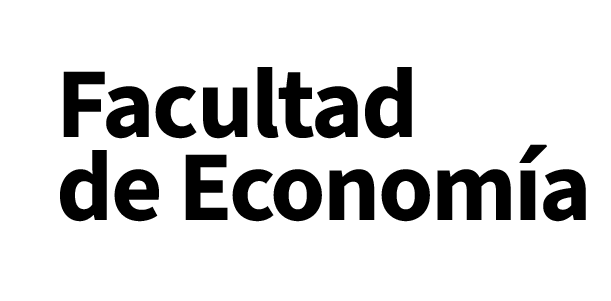Need for fair and equitable solutions to climate change and the energy crisis
Main Article Content
Abstract
In the last 50 years, the rules of operation of the prevailing world economic order have moved significantly away from the aspirations of the New International Economic Order (NIEO) launched in 1974 as a proposal from the developing countries. Furthermore, the environmental crisis, that affects the planet and compromises the future of humanity, has been accentuated to unprecedented levels; and the energy crisis that impacts especially on the most impoverished economies has been reinforced. The ecological and energy crisis must be analyzed, therefore, in their close connection with the problems, gaps and imbalances of today's world in terms of socioeconomic development. Both challenges have a very negative impact on the majority of the world's population, who resides in developing countries and moves in a vicious circle between underdevelopment, poverty and environmental deterioration. Proposals for solutions regarding the environment and development to get out of the aforementioned vicious circle and respond to the planetary ecological and energy crisis must take into account the priorities and interests of the South.
Downloads
Article Details

This work is licensed under a Creative Commons Attribution-NonCommercial-NoDerivatives 4.0 International License.
References
Agencia Internacional de Energía [AIE] (2021). Key world energy statistics 2021. Paris: IEA.
---------- (2022). World energy outlook 2022. Paris: IEA.
Almond, R.E.A., M. Grooten, D. Juffe Bignoli, y T. Petersen (eds.) (2022). Informe planeta vivo 2022. Hacia una sociedad con la naturaleza en positivo. Gland, Switzerland: WWF.
Arcaya, Mariana, y Elizabeth Gribkoff (2022). “Climate justice”. MIT Climate Portal. Mar 14, 2022. https://climate.mit.edu/explainers/climate-justice
Banco Mundial (2023). Global economic prospects. Washington DC: World Bank.
Bogmans, Christian; Andrea Pescatori, Ervin Prifti (2022). “Global food prices to remain elevated amid war, costly energy, La Niña”. IMF Blog – Commodities. Dec 9, 2022: https://www.imf.org/en/Blogs/Articles/2022/12/09/global-food-prices-to-remain-elevated-amid-war-costly-energy-la-nina
British Petroleum (BP, 2022). Statistical review of world energy, London: BP, Jun 2022.
---------- (2023). Statistical review of world energy, London: BP, Jun 2023.
Carney, Mark (2021). “Clean and green finance. A new sustainable financial system can secure a net zero future for the world”. Finance and Development. Sep 2021, pp. 20-22.
Castro, Fidel (1983). La crisis económica y social del mundo. La Habana: Oficina de Publicaciones del Consejo de Estado, 1983.
---------- (1992). Discurso pronunciado en Río de Janeiro por el Comandante en Jefe en la Conferencia de Naciones Unidas sobre Medio Ambiente y Desarrollo, el 12 de junio de 1992 (Versiones taquigráficas, Consejo de Estado), en CIEM (2019).
Centro de Investigaciones de la Economía Mundial [CIEM] (2019). Pensamiento económico de Fidel Castro sobre relaciones económicas internacionales. La Habana, CIEM; Editorial Academia, 2019.
Fondo Monetario Internacional [FMI] (2023). World Economic Outlook, Apr 2023.
Food and Agriculture Organization [FAO] (2023). World Food Situation. FAO Food Price Index, Rome: FAO, 2023. https://www.fao.org/worldfoodsituation/foodpricesindex/en/
Foro Económico Mundial (WEF, 2024). Global risks perception survey 2023-2024. Cologny, Switzerland: WEF.
Global Footprint Network (2024). Footprint Network. https://data.footprintnetwork.org/#/
Hickel, Jason (2020). “The sustainable development index: Measuring the ecological efficiency of human development in the antropocene”. Ecological Economics (167): Article 106331 .
Intergovernmental Science-Policy Platform on Biodiversity and Ecosystem Services [IPBES], (2019). “Summary for policymakers”. IPBES Global Assessment on Biodiversity and Ecosystem Services. May 31, 2019: www.ipbes.net
IPCC (2021). Climate change 2021: The physical science basis. Contribution of working group I to the Sixth Assessment Report of the Intergovernmental Panel on Climate Change (IPCC). Aug. 2021. www.ipcc.ch
IPCC (2022a). Climate change 2022: Impacts, adaptation and vulnerability. Contribution of Working Group II to the Sixth Assessment Report of the Intergovernmental Panel on Climate Change (IPCC). Feb. 2022. www.ipcc.ch
IPCC (2022b). Climate change 2022: Mitigation of climate change. Contribution of Working Group III to the Sixth Assessment Report of the Intergovernmental Panel on Climate Change (IPCC). Apr 2022. www.ipcc.ch
IPCC (2023). Synthesis report of the Sixth Assessment Report (AR6) of the Intergovernmental Panel on Climate Change (IPCC). Mar 2023. www.ipcc.ch
International Renewable Energy Agency [IRENA] (2020), Renewable energy policies in a time of transition: Heating and cooling. IRENA, OECD/IEA and REN21.
Naciones Unidas (2020). El costo humano de los desastres 2000-2019. Nueva York: Naciones Unidas. Centro de Investigaciones sobre la Epidemiología de los Desastres y Oficina de Naciones Unidas para la Reducción del Riesgo de Desastres.
---------- (2021). “El plástico, que ya ha atragantado nuestros océanos, terminará por asfixiarnos a todos si no actuamos rápidamente”, Noticias ONU. Oct 22, 2021; https://news.un.org/es/story/2021/10/1498752
OPEP. OPEC Bulletin (2023). 54(1): pp.4-88.
Pichs, Ramón, Rob Swart, Neil Leary y Flo Ormond (2000) (eds.). Development, sustainability and equity. Supporting Material, February 23, 2000. Proceedings of the Second IPCC Expert Meeting on DES, Havana, Cuba. https://www.ipcc.ch/publication/development-sustainability-and-equity/
Programa de las Naciones Unidas para el Desarrollo [PNUD] (2022). Human development report 2021-2022. Uncertain times, unsettled lives: Shaping our future in a transforming world, New York: UNDP.
---------- (2023). UNDP Climate Promise. “El cambio climático es un asunto de justicia: he aquí por qué”. Jul 5, 2023. https://climatepromise.undp.org/es/news-and-stories/el-cambio-climatico-es-un-asunto-de-justicia-he-aqui-por-que
Programa de las Naciones Unidas para el Medio Ambiente [PNUMA] (2019). Perspectivas del medio ambiente mundial. GEO 6. Resumen para responsables de formular políticas, Nairobi: PNUMA
---------- (2022). “Reportaje: ¿Qué potencial tienen las negociaciones para poner fin a la contaminacion por plasticos?” Noticias y Reportajes. Nov 28, 2022. https://www.unep.org/es/noticias-y-reportajes/reportajes/que-potencial-tienen-las-negociaciones-para-poner-fin-la
---------- (2023). “El día mundial del medio ambiente 2023 se centrará en las soluciones a la contaminación por plásticos con Côte d'Ivoire como país anfitrión”. Comunicado de prensa: Chemicals & pollution action, Nairobi: PNUMA, Ene 30 2023: https://www.unep.org/es/noticias-y-reportajes/comunicado-de-prensa/el-dia-mundial-del-medio-ambiente-2023-se-centrara-en
REN21 (2022). Renewables 2022 global status report, Paris: REN21.
Tekman, Mine B., Bruno A. Walther, Corina Peter, Lars Gutow y Melanie Bergmann (2022). Impacts of plastic pollution in the oceans on marine species, biodiversity and ecosystems. Berlin: WWF. DOI: 10.5281/zenodo.5898684
UK Government – UNFCCC (2021). CoP26 Explained. UN Climate Change Conference UK 2021.
US Energy Information Administration [US-EIA] (2023). Short term energy outlook, Washington DC: US-EIA.



